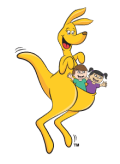GymbaROO kids are excelling academically, emotionally, in leadership roles and on the sporting field. Classes from birth – 5 yrs
Look at that child running smoothly across the soccer field. His movements are great. All his muscles are moving together in harmony, his body moves as one whole, every part – both large and small – is in perfect tune with each other. His rate, rhythm and sequential movements move as one – this is what it means to be synchronised and this is TEMPORAL AWARENESS.
So, let’s look at the value of temporal awareness, after all, what does it matter if we are not the smoothest of runners, or for that matter, walkers? Good temporal awareness not only means a child is able to play sport well, but he will also be able to learn easily in the classroom. This is why so many GymbaROO activities provide the stimulation needed to help children develop good temporal awareness, right from birth.
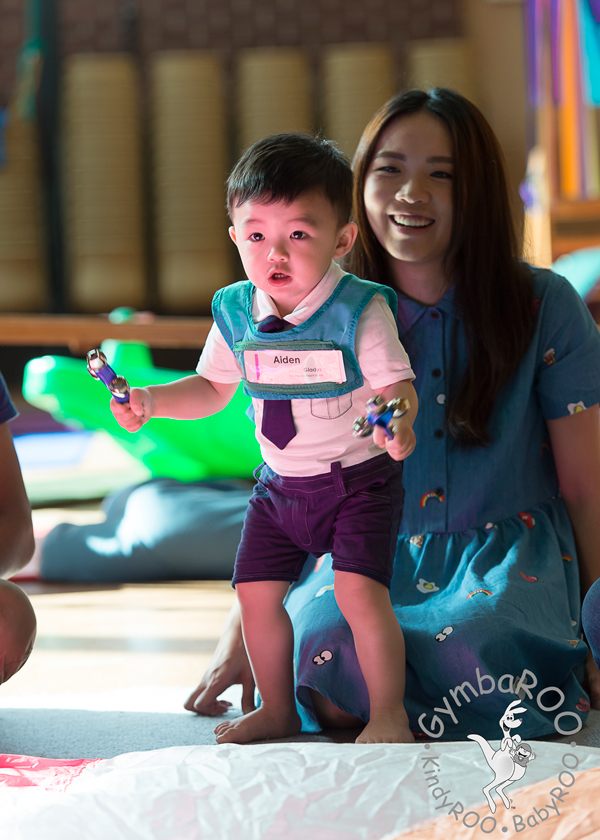
Reading: Think of a child reading. To read well, the eyes need to move in unison, rhythmically across the page of print. If a child has poor temporal awareness, it’s likely that moving eyes smoothly across a page is challenging. Most likely words, or even sentences will be skipped, as the child tries to adjust his eyes to look smoothly along a line.
Writing: Writing is also affected by poor temporal awareness as not only will a child have trouble with spelling, but his body movements would be jerky and the writing messy. The child would also have trouble remembering what he was about to write, because much of his thinking time is taken up controlling the pencil and trying to remember the sequence of letters in the word being spelt.
Logical reasoning: When a child has poor temporal awareness the ability to reason logically is difficult as they have trouble remembering the sequence of events leading up to their conclusions. Sequences are timed events that follow one after the other, and if your timing is ‘out’, it’s very hard to remember the order of movements, events, numerals, letters or words.
Speech: A child with poor temporal awareness has difficulty retaining the rhythm of words, let alone the sequence of a sentence containing several words.
By what age should children develop temporal awareness?
Under two years: A child under the age of two years has absolutely no idea about time. If you say “in a minute” (which they hear frequently), they believe a minute to be a very long time! They simply do not understand minutes, hours or even days. Everything is after ‘how many sleeps’. Asking a two year old to be good in July and promising a lovely Christmas present in December is a waste of time! Even tomorrow is meaningless to most two year olds. However this does not mean that temporal awareness is not developing. As your GymbaROO instructor will have informed you, the basic building blocks necessary for learning, for understanding time and to develop well-timed, coordinated movements are very much in the making in these earliest years.
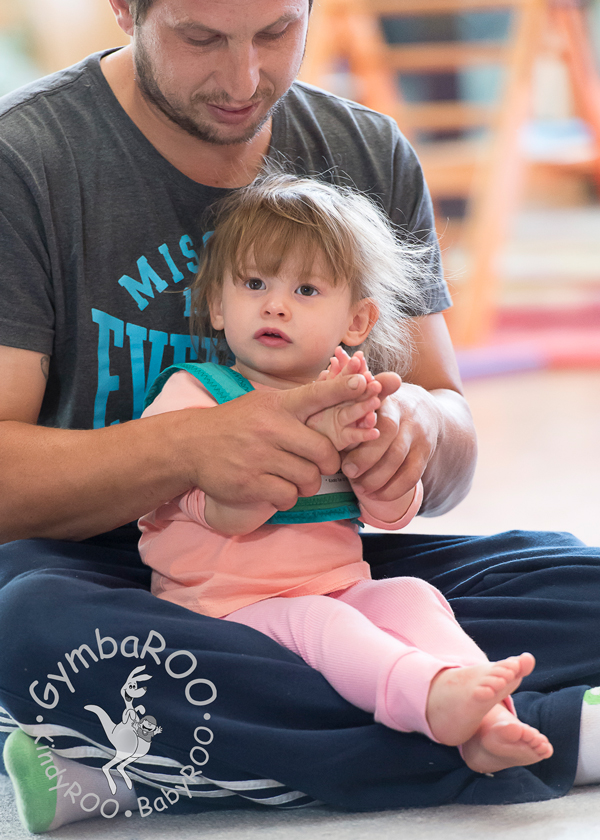
Three years: This group have a vague idea about time, but are still not sure. They’ve got morning and afternoon, but still prefer after ‘how many sleeps’. They are yet to have enough experience of moving their bodies through space and having the neurological level of development required to fully understand time. Basically their nervous system is still too immature, but with a little more experience they will gain temporal awareness. This is the aim of many of the activities at GymbaROO and KindyROO.
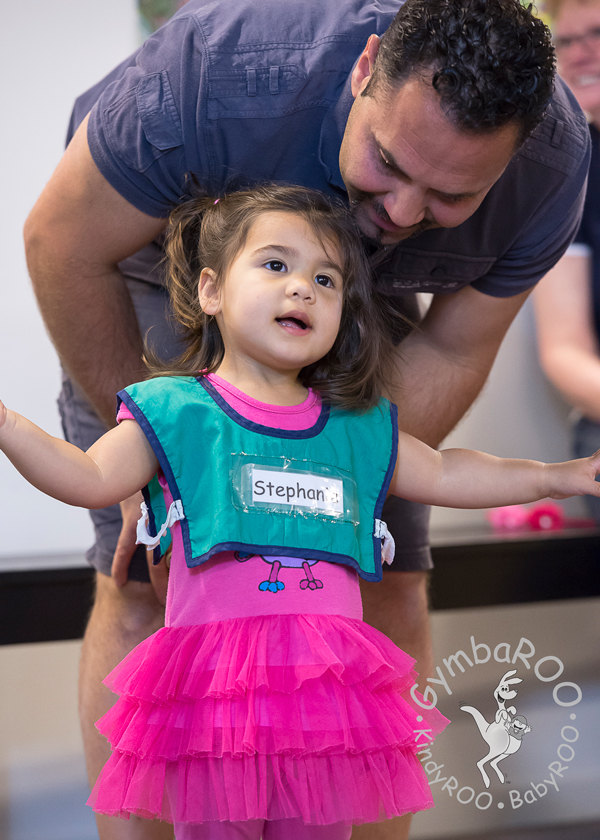
How can parents help?
Under three years: Keeping a routine is a dramatic help as it enables the little ones to know exactly what to expect and when. For this reason the sessions at GymbaROO and KindyROO are very routine, always following the same pattern of activities: short equipment time; mat time and activities; dance; treasure bag and visualisation; equipment time, temporal awareness/music and parachute. The routine is set – while activities within it change in relation to the neurological and visualisation theme.
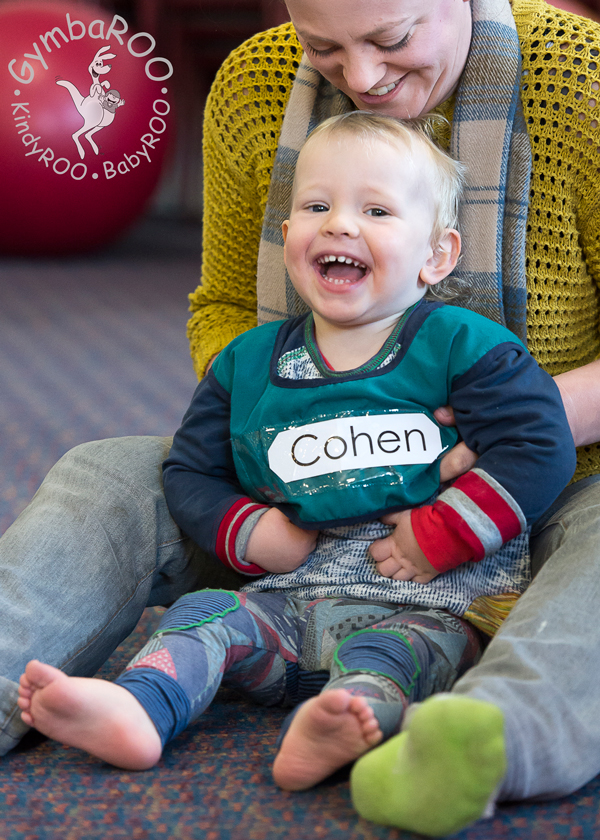
Many children simply cannot cope with change – even adults find change difficult, but those who react more severely can be having difficulty in their temporal awareness abilities.
To help children develop an awareness of ‘time’ and ‘rate’, activities involving music and movement are invaluable. Such activities as these also enable experience with sequencing, as various dances are learnt and actions sequenced on, for instance, the rhythm sticks or bean bags.
As toddlers ‘get the beat’, their running and general coordination improves, both fine and gross. However, it often takes TIME to get it all together!
Catching or hitting balloons with a fly swat, helps toddlers to gain this sense of timing. How fast will it come back to me? Just batting it with their hands is fun. Blow up a balloon for your toddler to hit around. Hitting balloons or large balls to a target helps to judge distance. But is tricky.
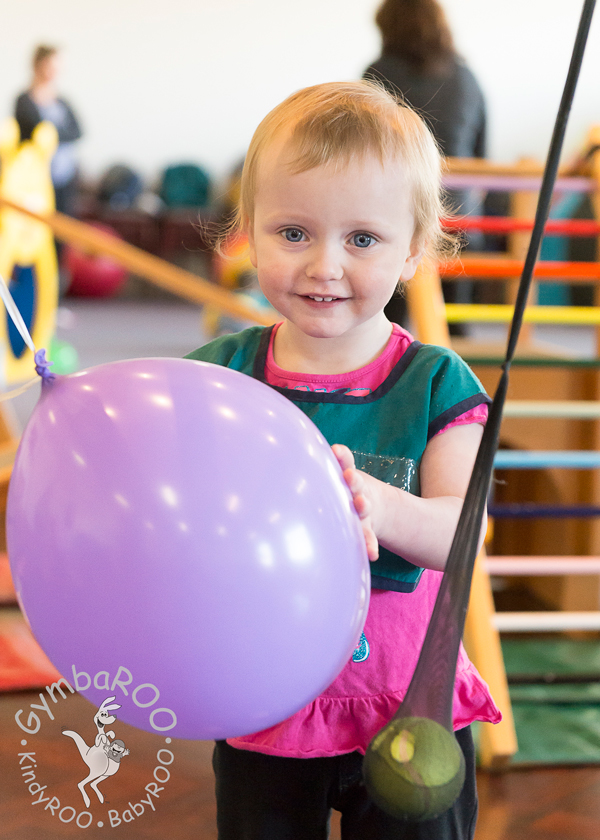
Three and four year olds: This age group benefit from a series of exercises and lots of games involving skipping to a specific beat, hopping to another and galloping. Playing in team games involve timing, taking turns and following instructions sequentially. Cards and other games help them learn to take turns, to count and LOSE occasionally. Interpreting and acting out ideas to selected music such as robot music is great for timing! Clapping games are excellent. Swinging is terrific for timing and rhythm – listen to the younger ones getting the rhythm up (with their feet), back, up, back as they swing themselves.
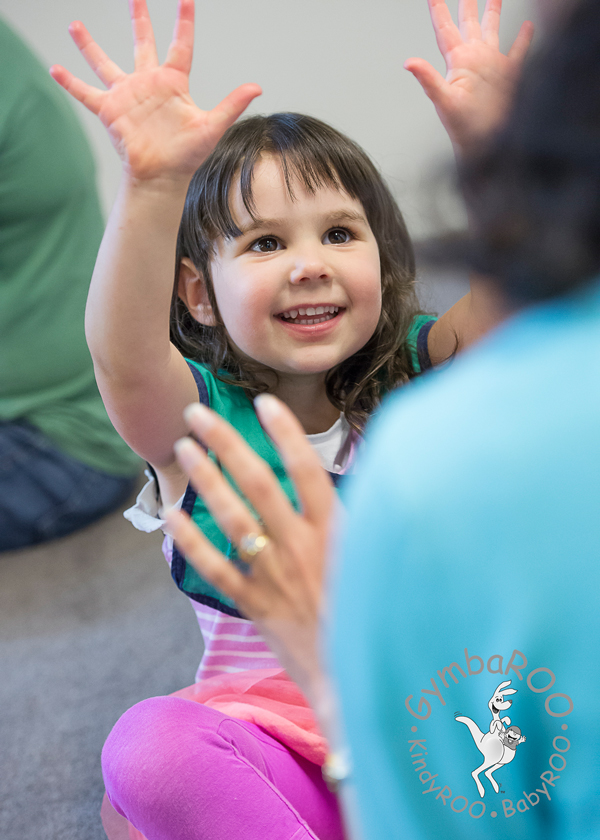
Temporal awareness takes time and lots of movement and music experiences to develop, but with lots of opportunities, one day your child will be the one running smoothly across the soccer field and enjoying success in school!
Dr Jane Williams (PhD, BMgt, RN(Paeds)) is the Research and Education General Manager for GymbaROO and KindyROO. She is one of Australia’s leading experts on baby and child development. More on Dr Williams here.
GymbaROO Images by Studio Z Photography
BabyROO GymbaROO KindyROO
Thousands of parents, babies and children are presently involved in our programs. GymbaROO kids are excelling academically, emotionally, in leadership roles and on the sporting field. Come join all the fun and learning! “GymbaROO – The best decision I ever made for my child.” Classes from birth – 5 years. Find your local GymbaROO.
GymbaROO for Babies from Birth: 12 FREE Online BabyROO Videos
Our free online series is taking the parenting world by storm! It is highly recommended by doctors, paediatricians, early childhood experts and the Maternal Child and Family Health Nurses Association. This series is being called: “The essential guide for parents.” Join the thousands of parents already playing with their babies from birth, in the best way for brain and body development and laying crucial foundations for future learning. What happens in the first year, not only matters, it matters a lot! Active Babies Smart Kids BabyROO series – Click here. (Australia and New Zealand only).

